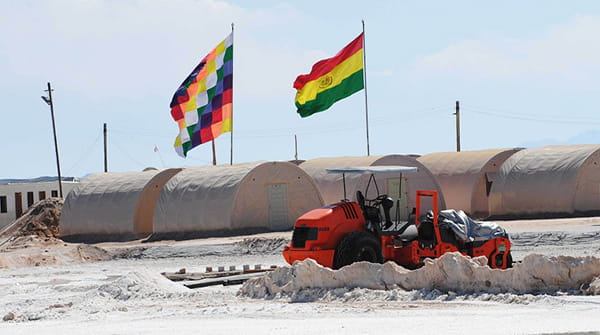“This year we can already begin construction of civil works, next year we will begin construction of the equipment assembly as such,” said the executive president of Yacimientos de Litio Boliviano (YLB), Omar Alarcón, in an interview with the state channel Bolivia Tv.
Two contracts signed by YLB with the Chinese consortium Hong Kong CBC and the Russian company Uranium One Group, to build battery-grade lithium carbonate production plants, are in the ALP (parliament) for their corresponding treatment and approval.
According to Alarcón, once these contracts are approved by the ALP, the next step will be to complete the final construction design of these industrial plants.
“To do this, we must have the relevant construction and environmental licenses -the authority commented- in order to be able to intervene in the area (where the industrial plants are located).”
In September 2024, YLB and the Russian company Uranium One Group signed the first contract to produce 14 thousand tons (t) of lithium carbonate annually in the Uyuni salt flat, Potosí, with direct lithium extraction (EDL) technology and an investment of over 970 million dollars.
Two months later, YLB and the Chinese company Hong Kong CBC sealed another contract for the location of two annual production plants of this compound using the EDL method with a capacity of 10 thousand tons and 25 thousand tons a year with an investment of 1.3 billion dollars.
The Energy and Hydrocarbons Committee of the Bolivian Chamber of Deputies approved these contracts on January 8 and sent them to the Plural Economy Commission.
Once endorsed in that instance, the documents will go through a similar process in the plenary session of the Chamber of Deputies.
Alarcón and the Vice Ministers of Alternative Energies, Álvaro Arnez, and of Exploration and Exploitation of Energy Resources, Raúl Mayta, explained in the session the scope of the contracts that will allow the application of the EDL technology.
With this method, it is expected to significantly increase the production volumes of battery-grade lithium carbonate, compared to the pool evaporation system, which was previously predominant.
ef/oda/jpm









